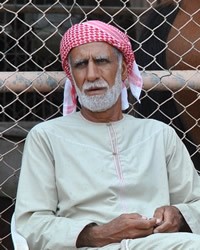Bedouin, Sanusi in Libya

Photo Source:
Leo Magazzu - Pixabay
|
Send Joshua Project a map of this people group.
|
| People Name: | Bedouin, Sanusi |
| Country: | Libya |
| 10/40 Window: | Yes |
| Population: | 635,000 |
| World Population: | 635,000 |
| Primary Language: | Arabic, Libyan |
| Primary Religion: | Islam |
| Christian Adherents: | 0.00 % |
| Evangelicals: | 0.00 % |
| Scripture: | Portions |
| Ministry Resources: | Yes |
| Jesus Film: | Yes |
| Audio Recordings: | Yes |
| People Cluster: | Bedouin, Saharan |
| Affinity Bloc: | Arab World |
| Progress Level: |
|
Introduction / History
The Sanusi are one of the most unique groups of Bedouin. They have been influenced by both the traditional nomadic lifestyle of the Bedouin and the religious teachings of a prophet known as Sayyid Muhammad ibn' Ali as-Sanusi. This particular Muslim influence has made them one of the more gentle of the Bedouin tribes.
The traditional homeland of the Bedouin is the Arabian Desert; however, some groups, such as the Sanusi, have migrated into northern Africa. Today, many Sanusi Bedouin live north of the Sahara Desert in eastern Libya. It is a fertile area that runs into the Mediterranean Sea.
The Bedouin fall into two basic social classes. One class is known as the true Bedouin, and they live as nomadic shepherds. The other group has embraced farming and is known as the fellahin. Due to the fact that the Sanusi usually settle in villages, most of them are of the fellahin type. They speak Badawi (Bedouin Arabic).
What Are Their Lives Like?
Despite being more settled than the nomadic Bedouin, Sanusi Bedouin still have a relatively harsh existence. Those who herd goats and sheep stay close to the desert's edge, and the harsh environment makes farming a difficult task with a poor yield. As in most Bedouin societies, the women do most of the work, while the men tend to socialize and make plans for the group.
The material culture of the Bedouin is limited. Their tents are their main possessions, and animals have become very important for their nomadic lifestyle. Camels are their main means of transportation, while sheep and goats are bought and sold.
Dairy products are the main food source for the Bedouin. Milk from camels and goats is made into yogurt and a type of butter known as ghee. Most of their meals consist of a bowl of milk, yogurt or rice covered with ghee. Round loaves of unleavened bread are served when available. Dates, which can be found in desert oases, are eaten for dessert. Meat is only served on special occasions such as marriage feasts, ceremonial events, or when guests are present.
To endure the extreme heat of the desert, the Bedouin wear lightweight, light-colored clothing. It is very loose-fitting, allowing for the circulation of air.
What Are Their Beliefs?
Sanusi Bedouins in Libya are Sunni Muslim. They believe that the supreme God, Allah, spoke through his prophet, Mohammed, and taught mankind how to live a righteous life through the Koran and the Hadith. To live a righteous life, you must utter the Shahada (a statement of faith), pray five times a day facing Mecca, fast from sunup to sundown during the month of Ramadan, give alms to the poor, and make a pilgrimage to Mecca if you have the means.
The two main holidays for Sunni Muslims are Eid al Fitr, the breaking of the monthly fast and Eid al Adha, the celebration of Abraham's willingness to sacrifice his son to Allah.
Sunni religious practices are staid and simple. They believe that Allah has pre-determined our fates; they minimize free will.
Bedouins also depend on the spirit world for their daily needs since they regard Allah as too distant. Allah may determine their eternal salvation, but the spirits determine how well we live in our daily lives. For that reason, they must appease the spirits. They often use charms and amulets to help them with spiritual forces.
What Are Their Needs?
Evangelization efforts among them are challenging due to the harsh and unsettled nature of the Bedouin lifestyle. Christ bearers who go to them must be willing to share in their harsh lifestyle.
Prayer Points
Pray for Sanusi Bedouin fathers and grandfathers to have dreams of the risen and righteous Christ, giving them reason to look to him for spiritual answers.
Pray for a sense of spiritual hunger that will lead this Bedouin group to the cross and the empty grave.
Ask the Lord to call people who are willing to reach out and share the love of Christ with Sanusi Bedouins.
Pray for Sanusi Bedouin culture to be renewed and enhanced by a work of the Holy Spirit and shaped into a God-centered and God-honoring mold.